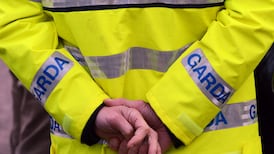More than 30 years have passed since former Irish national swim team coach George Gibney won a legal challenge in Dublin’s High Court, ensuring he escaped prosecution for the alleged sexual abuse of young swimmers he coached.
Gibney was arrested in Florida on Tuesday by US marshals on foot of an extradition request from the authorities in the Republic.
So what changed to revive law enforcement’s interest in Gibney?
The short answer is the BBC’s Where is George Gibney? podcast. Changes in the Irish criminal justice system have also now made a prosecution possible.
READ MORE
The podcast series was made by Mark Horgan of Second Captains and documentary-maker Ciarán Cassidy.
The series was broadcast between 2020 and 2022. It was an extensive trawl into Gibney’s background, including his alleged sexual abuse of young swimmers.
It culminated in tracing him to Florida and approaching him on the street for comment. Though Gibney refused to engage, many of his alleged victims were listening to the series.
Four came forward and made statements to gardaí alleging Gibney had sexually abused them between 1971 and 1981. By 2021, with the statements gathered, detectives at the Sexual Crime Management Unit were deep into a criminal investigation.
Once completed, a file was sent to the Director of Public Prosecutions (DPP). It directed in May 2023 that Gibney should face trial on 79 criminal charges; one charge of attempted rape and 78 of indecent assault. The following month – June 2023 – Dublin District Court issued 79 warrants for his arrest, all done in secret.
The Irish authorities, through the Irish Embassy in Washington, last October formally requested Gibney’s extradition. On foot of that request, he was arrested in Florida on Tuesday, appearing in court later in the day and was remanded in custody, where he remains pending extradition.
The Irish Times has secured the latest documents relating to the case from the United States District Court for the Middle District of Florida.
The four victims allege they were abused – often weekly – between the ages of about eight and 14. The alleged offences occurred at Gibney’s home, his car, the girls’ homes, and in changing rooms or an office at sports centres where the girls swam; often five mornings, from 5am, and two afternoons, per week.
The BBC podcast and the impact it had in prompting the four victims to come forward are mentioned several times in the court documents from Florida. They were not the first group of alleged victims to come forward, however.
Gibney had appeared before Dún Laoghaire District Court in April 1993 to face 27 counts of indecency and carnal knowledge of children. The following year, however, he successfully won a High Court judicial review, which prohibited the DPP from pressing ahead with its case against him.
Under accepted legal norms in 1994, the court effectively ruled the allegations were too old, and many details too vague, to warrant a safe prosecution.
Since the 1990s, the courts in the Republic have more frequently convicted criminals, mainly child abusers, for crimes committed decades earlier.
Victim testimony in court is now regularly the only significant evidence required to secure convictions. In many cases, convictions have been secured even when the passage of time has meant the victims’ recall is incomplete around the locations, dates and other details of the abuse to which they say they were subjected.
Due to the 1994 High Court ruling relating to the 27 charges at that time, however, the State was effectively precluded from ever taking up those complaints and seeking to run a new prosecution. That meant if Gibney was ever to be investigated again by the Garda, undiscovered victims had to come forward. They had to make a new set of allegations to ground a fresh investigation that did not overlap with the previous inquiry.
That did not happen until the Where is George Gibney? podcast began airing five years ago. A renewed effort to prosecute, even based on complaints from new victims, likely would have failed in the 1990s because of the ruling in 1994. It took many years for legal norms to change around how historical sexual abuse cases could be prosecuted.
The failed prosecution process against Gibney in the 1990s meant he was free to leave the Republic. He tried to relaunch his coaching career in Scotland, but was forced to leave there when news of the allegations against him emerged. Gibney has lived in the US since 1995.















